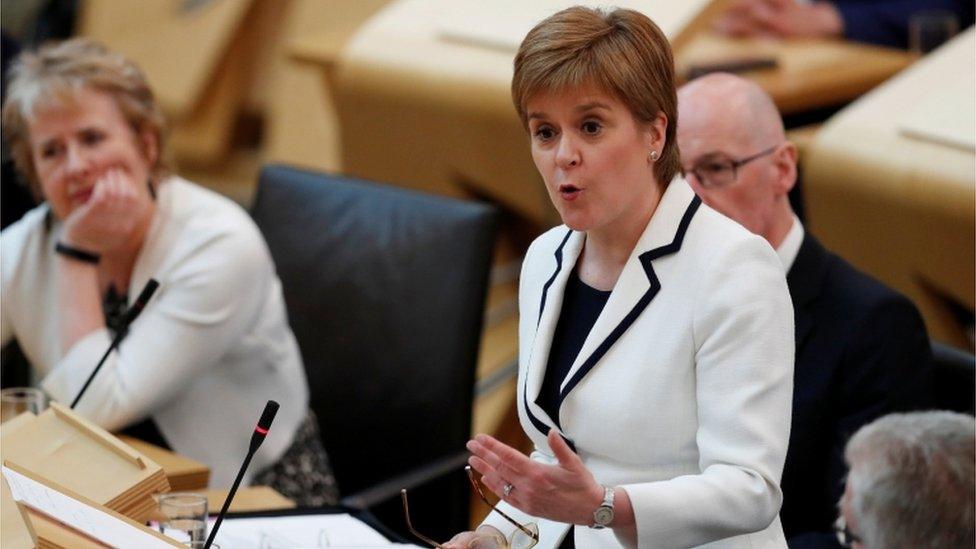Sturgeon's Indyref2 announcement - a tale of two statements
- Published
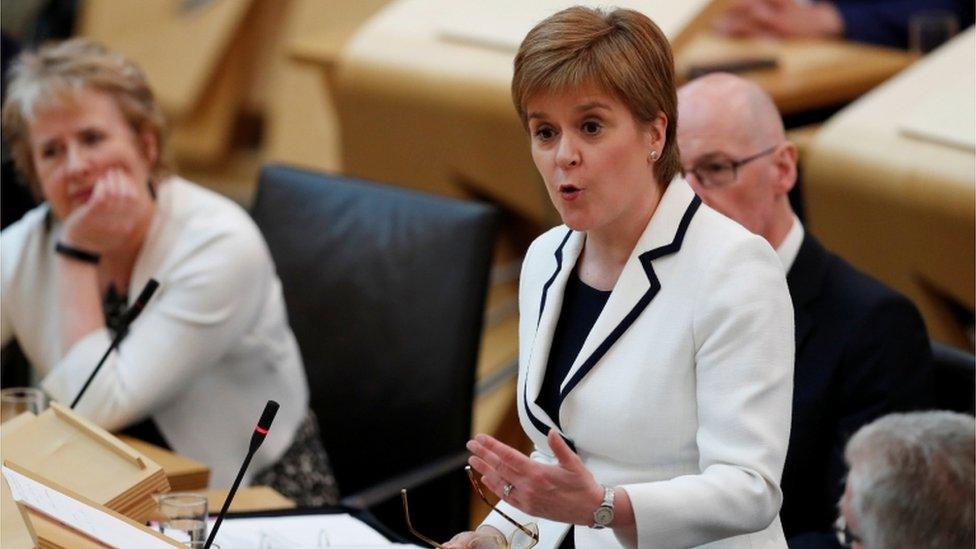
There were two statements at Holyrood today. The one delivered by the First Minister. And an entirely different version, as heard by her opponents.
It was evident in the reaction. The SNP benches responded with applause, albeit solemn rather than ecstatic. After all, this is still nirvana deferred.
By contrast, as Nicola Sturgeon sat down, the Tories sat in stolid, unmoving silence, like a theatre audience told that the star of the evening is stuck in traffic and the bar has run out of gin.
Ms Sturgeon infused every second with dignity, decorum and detail. Her demeanour said this was serious, a big deal. The statement was lengthy and substantive. She even quoted Abraham Lincoln.
Again by contrast, opposition MSPs indulged in subterranean laughter pretty well every time Ms Sturgeon mentioned independence. Or, indeed, anything else.
Their tone, their body language, said that they read this statement as a stunt, designed to placate the SNP conference this coming weekend.
Did Ms Sturgeon have an eye to that Edinburgh gathering? You bet she did. It is a foolish leader who ignores her party - and, currently, the mood is somewhat restless.
I would not care to overstate that. In advance of conference, there are always murmurs of discontent.
Those tend to vanish when the activists gather and confer. Although, on this occasion, there is a substantial debate to be had over economic policy and currency.
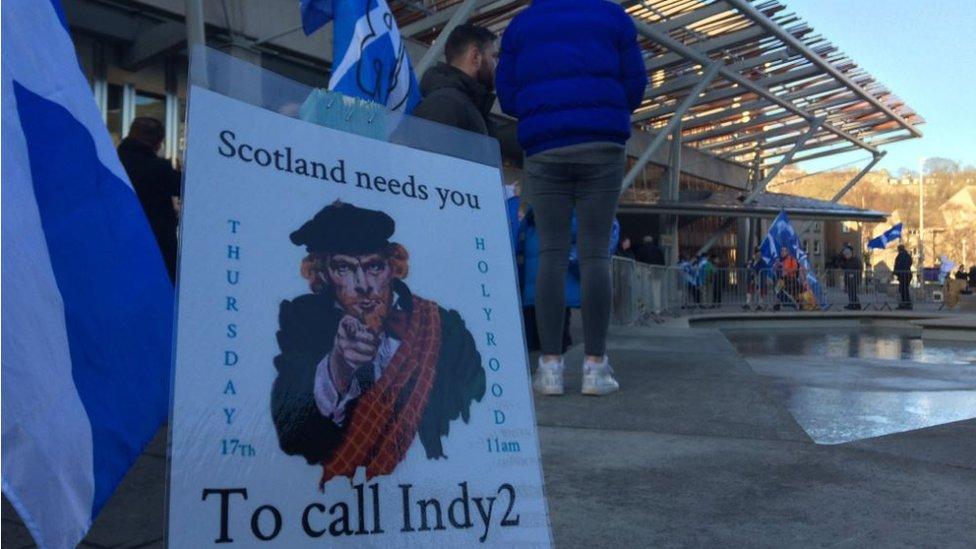
Some pro-independence campaigners have been calling on Ms Sturgeon to press ahead with a new referendum
But, equally, I think there were other, more fundamental, motivations impelling Ms Sturgeon.
For one thing, she has had this statement on hold since 2017 when she first demanded Section 30 powers from Westminster to hold a referendum - and then put that demand on ice when Brexit stretched out from the prolonged to the interminable (and her party lost seats at the 2017 UK General Election.)
She had said she would wait until there was clarity over Brexit. Her patience on that issue, along with that of the people, was being sorely tested.
Secondly, she has needed for some time to finesse competing Brexit elements as they impact upon the issue of Scottish independence.
'Confidence in short supply'
Yes, Scotland was told in 2014 that the only way to maintain links with the EU was to stay in the UK. Yes, that has not turned out to be the case. Yes, that might be seen as a trigger for an independence plebiscite.
But, as I have argued endlessly, the SNP long-term offer is predicated upon persuading Scots to have the confidence to take charge of their own affairs. Brexit has left confidence in rather short supply.
So Ms Sturgeon is now saying that she will revert to the demand for Section 30 powers if and when Brexit is resolved. If and when there is that fabled clarity.
Meantime, she is preparing a generic bill on referendum rules. (The details - date, question - would follow in secondary legislation.)
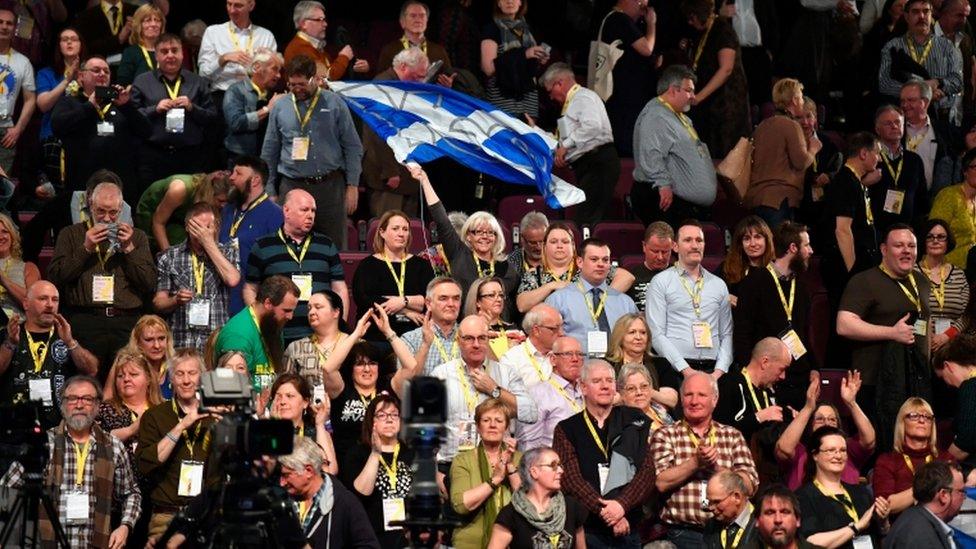
The SNP conference will be held at the weekend - with Ms Sturgeon due to speak on Sunday
She is promising a Citizens Assembly in order to tap into the public mood. As was established in 2016 in Ireland to consider abortion and several other policy questions. As Gordon Brown suggested for Brexit.
And she has offered cross-party talks on further powers for Holyrood. She insists that proves she is being consensual. The opposition parties, with the exception of the Greens, seem less than entranced.
The Tories are completely against the notion, saying that the Scottish government should instead start using the powers they have. (Ms Sturgeon disputes that accusation.)
Consensual chat
Roughly the same line comes from Labour and the Liberal Democrats. They scent a ruse, a diversion to keep them occupied while Ms Sturgeon pursues independence.
Nicola Sturgeon, I reckon, is banking on the public being generally in favour of politicians sitting down for a consensual chat. Whatever their differences, whatever the genesis of the offer.
Ditto, the fact that the power to call a referendum rests with Westminster - and would have to be transferred by agreement, as in 2014.
Ms Sturgeon pursues that generic legislation for now, hoping to enact it by the end of this year.
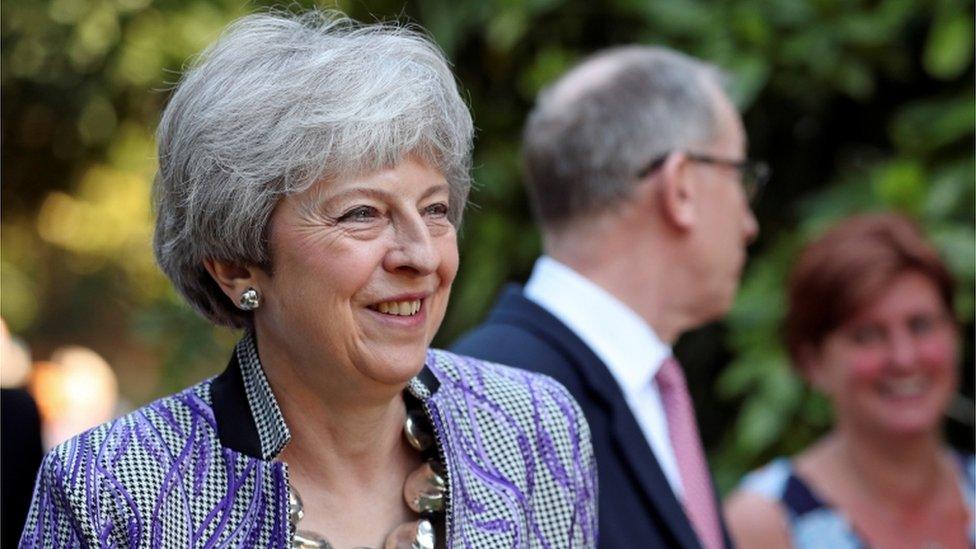
Downing Street says the prime minister is still of the view that there should not be another independence referendum
Then, sometime in 2020, she requests a Section 30 transfer of powers again. If the Prime Minister says Yes, then on for a referendum.
If the Prime Minister (whoever might be in office by then) continues to say No, then Nicola Sturgeon's party use that as a campaigning strategy in the 2021 elections.
Be clear, though. This is not where the SNP wants to be. They want to be in a position to hold a referendum, unsullied by Brexit - and to win it.
This is a holding position. One that leaves their opponents unimpressed and cynical. But one that, for now, will placate those Nationalists who are open to persuasion. As they are. Mostly.
- Published24 April 2019
